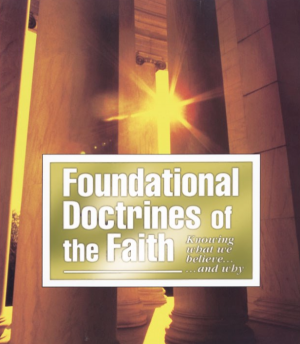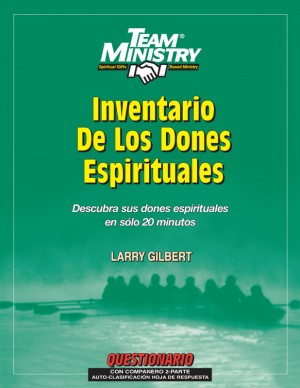The single most significant experience in life is receiving the salvation provided by Christ on the Cross.
The salvation experience is difficult to describe fully if a person has not personally experienced salvation.
The Bible uses the word salvation in three different ways…
- First, salvation is described in a past tense. In this sense we have been saved from the guilt and penalty of sin.
- Second, salvation is described in a present tense. This means we are being saved from the habit and dominion of sin.
- Third, salvation is described in a future tense. Someday, we will be saved from all the physical infirmities which are the consequence of sin and the curse of God upon sin.
The Bible uses many different expressions to describe the change that takes place in a person’s life in salvation. Each expression describes the same thing from a slightly different perspective, emphasizing a particular aspect of this experience.
As we examine what we believe about salvation, we will focus our study on four of these words: conversion, regeneration, justification, and sanctification.
Conversion: Bible teachers often use the word conversion when describing the salvation experience from a human perspective. Conversion refers to the personality change that takes place when a person becomes a Christian. This change embraces the total person, intellect, emotions, and will. The apostle Paul described the conversion experience when he wrote, “But thanks be to God that, though you used to be slaves to sin, you have come to obey from your heart the pattern of teaching that has now claimed your allegiance.” (Romans 6:17).
Regeneration: This is the work of God through the Holy Spirit within a person who has “saving faith,” in which a new nature is given that makes the person capable of doing the will of God. Whereas conversion looks at the salvation experience from a human perspective, regeneration describes the same experience from a divine perspective. The term regeneration occurs in only one verse to describe this experience, “…not by works of righteousness which we have done, but according to His mercy He saved us, through the washing of regeneration and renewing of the Holy Spirit…” (Titus 3:5). Regeneration is also described by Jesus as being “born again” in John 3:3…“Most assuredly, I say to you, unless one is born again, he cannot see the kingdom of God.”
Justification: While there are many things which happen in the experience of the Christian at the moment of salvation, there are also a number of things which happen outside the realm of our experience which are nevertheless just as real. The conversion and regeneration experience coincides with a legal declaration of our righteous standing before God. This aspect of salvation is called “justification.” This exciting aspect of the doctrine of salvation gave birth to the Protestant Reformation. Justification is the act whereby God declares a person righteous when he or she trusts Christ. It is the means by which God establishes a legal relationship between God and people. It doesn’t make people perfect but rather declares them perfect in God’s sight. Someone has put it this way: “Justification means God sees me ‘just-as-if’ I’d never sinned!” Justification is non-experiential. It gives us a new standing before God and is the means by which we enter into a new position in the heavenlies (Ephesians 2:6). It is a judicial act on the part of God that results in our having peace with God (Romans 5:1).
- Sanctification: While we are justified at our conversion, it often takes time to experience the change which has taken place in our life. The process by which we apply our salvation to a lifestyle which becomes more Christlike is called “sanctification.” The key to sanctification is letting Christ live His life fully through our life (Galatians 2:20). The apostle Paul describes this process throughout his epistles, but perhaps never so clearly as in Romans 6, where he describes the practical steps in working out our personal salvation into a consistent Christian lifestyle.
This salvation experience is so significant that the Bible uses over a hundred different expressions to describe it.
Dr. Elmer Towns is Vice President of Liberty University, which he co-founded in 1971 with Dr. Jerry Falwell. Dr. Towns has been a popular Sunday school teacher and college and seminary professor for decades.
This article is excerpted and condensed from Dr. Towns’ 60-page eBook Foundational Doctrines of the Faith. Read it NOW, eBook instant PDF Download, $11 value only $4.99, More…
Here is a summary article of the 8 Foundational Doctrines of the Christian Faith
RELATED ARTICLES: WHAT WE BELIEVE ABOUT…
Permission granted to copy, forward, share, post and reproduce everything in this article, please include this link Source: ChurchGrowth.org, CLICK HERE to subscribe for FREE
To grow as a Christian, you need to…
- Pray, worship God and read The Bible each day,
- Join a small group with other Christians to encourage each other’s Christian growth,
- Each week, join in worship at a good Church that preaches The Bible as God’s Word,
- And minister to others in the name of God.
Discover more about how God has given to you spiritual Gifts for your own personal ministry and for ministry with others using the links and resources shown below.
Here are more free articles, one for each of the nine Team Ministry Spiritual Gifts…
Each of these nine Team Ministry Spiritual Gift articles was excerpted from the book Your Gifts: Discover God’s Unique Design for You.
Discover more about your spiritual gifts and each of the nine team gifts.
For individuals and groups.
Read This Book NOW, eBook Instant PDF Download, Click Here
Read This Book with Your Group, Bulk Pricing for Groups, Click Here

Spiritual Gifts Can Unleash the Power of Everyone!
Lead others to discover their spiritual gifts.
For pastors, teachers and group leaders.
Read This Book Now, eBook Instant PDF Download, Click Here
Read This Book with Your Group of Pastors and Shepherds, Bulk Pricing for Groups, Click Here














